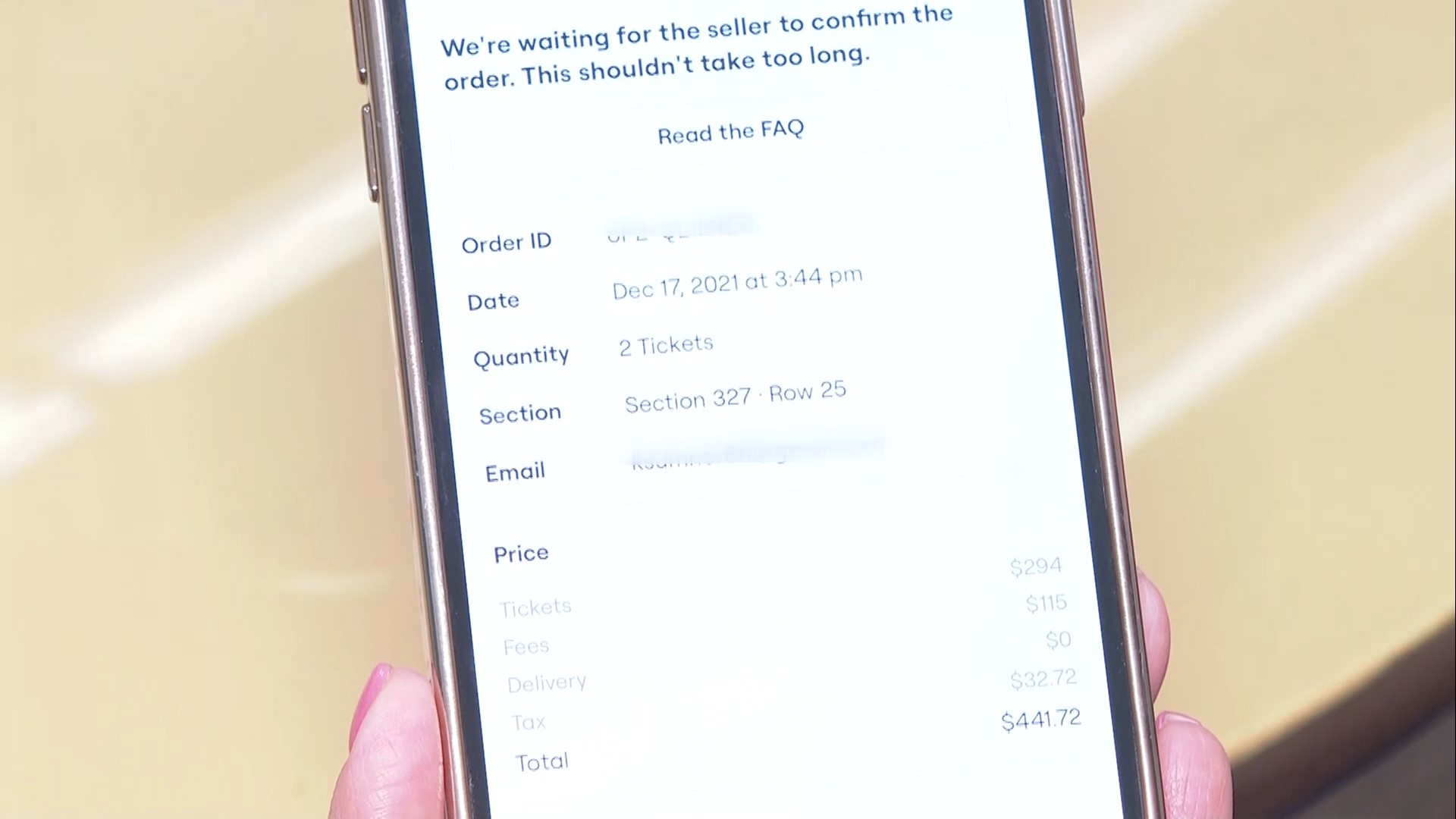ATLANTA — A Georgia family is warning about online ticket sellers after they said they spent hundreds of dollars to see the Georgia Bulldogs play, but the seller never released the tickets.
“We bought the tickets for our son for Christmas last year, for the Georgia-Tennessee game," said Katie Sumner.
Sumner said for that $441, she was the mom of the year, securing tickets on SeatGeek to one of the biggest games of 2022 as a gift to her son.
“Who knew it would literally be the game of the century?" she laughed. "He was so excited.”
But Sumner started to sweat when days before the game, the tickets still hadn’t hit her account.
“I was trying to upload the tickets and it kept saying they had not been released from the seller yet, that it could take up to 24 hours before the game," she recalled.
But when that day came, the tickets still hadn't arrived.
“They put me on hold forever and came back and said they can't release the tickets," Sumner said. "The seller has decided that they priced the tickets wrong. I guess the SeatGeek never had possession of the tickets.”
She ended up shelling out nearly $1,400 dollars to buy new tickets on a different site.
“I think the seller, they probably had season tickets and they realized that they could make a lot more money, or they went to the game themselves," Sumner said. "That's almost like stealing.”
After 11Alive reached out to SeatGeek, a company spokesperson apologized for the trouble and refunded Katie the original ticket price, plus the difference for what she had to pay for the new seats.
Other ticketing sites have been under scrutiny for lack of availability as well.
Notoriously, 14 million Taylor Swift fans sent Ticketmaster into a tailspin, crashing the site and leading the Department of Justice to open an investigation.
Here are some tips for buying tickets according to the Better Business Bureau (BBB):
- Purchase from the venue whenever possible. Many official ticket sales agents now offer secondary sales options as well.
- Consider your source. Know the difference between a professional ticket broker (a legitimate and accredited reseller), a ticket scalper (an unregulated and unlicensed ticket seller), and a scammer selling fake tickets.
- Check out the seller/broker. Look them up on BBB.org to learn what other customers have experienced. Check to see if they are a member of the National Association of Ticket Brokers. NATB members offer a 200% purchase guarantee on tickets. Look up the seller on VerifiedTicketSource.com to confirm you are buying from a NATB-member resale company.
- Buy only from trusted vendors. Buy online only from vendors you know and trust. Look for the lock symbol in the web address to indicate a secure purchasing system. Don’t click through emails or online ads; a common ticket scam trick is to create a web address that is similar to a well-known company.
- Know the refund policy. You should only purchase tickets from a ticket reseller that provides clear details about the terms of the transaction. Sellers should disclose to the purchaser, prior to purchase, the location of the seats represented by the tickets, either orally or by reference to a seating chart; and, if the tickets are not available for immediate access to the purchaser, disclose when the tickets will ship or be available for pick up.
- Use payment methods that come with protection. Always use a credit card so you have some recourse if the tickets are not as promised. Debit cards, wire transfer or cash transactions are risky; if the tickets are fraudulent, you won’t be able to get your money back.
- Be wary of advertisements. When you search the web for online tickets, advertisements for cheap tickets will often appear. Use good judgment; some of these ads are going to be ticket scams, especially if the prices are low.
- If you’re unsure, verify your tickets. Pay a visit to the arena where the event will be held. Present your ticket to “Will Call” (customer service) and they can verify if your ticket is legitimate and show you how to tell if a ticket is fake.

